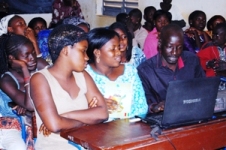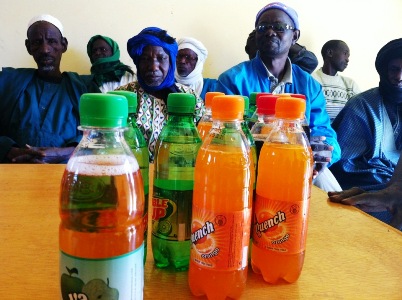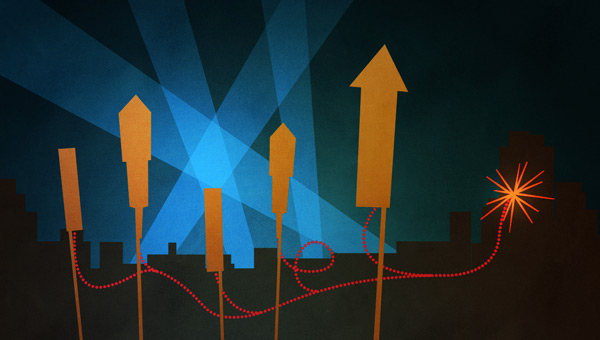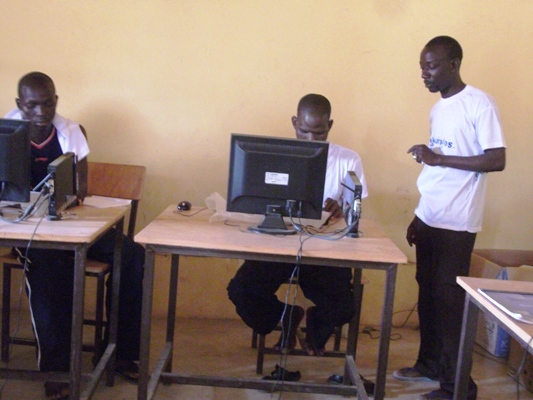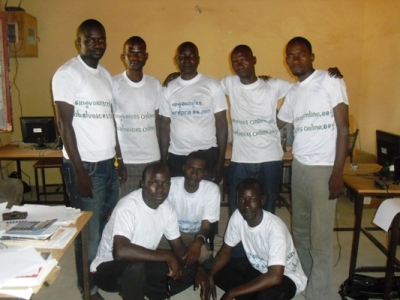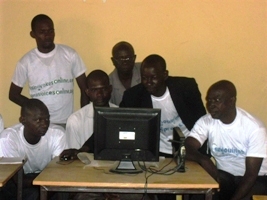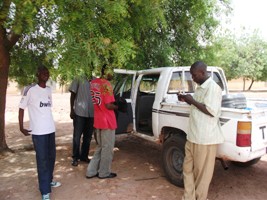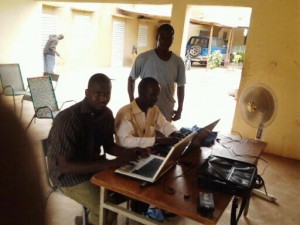Few days after the training in Internet and sending of information by SMS, the participants began to send us informations. Here are some of these informations which are different from those that we daily read on Web:
Seydou, a teacher of Ngakoro in the commune of Cinzana-Gare asks us this question:
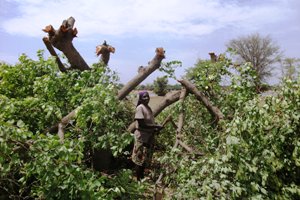
“Can the solar energy replace the wood for the kitchen to avoid the deforestation?”
“L’énergie solaire peut-elle remplacer le bois pour la cuisine afin d’éviter la déforestation ? » (Seydou's SMS in french)
Issa, a teacher of Kolonkolona, in the commune of Cinzana-Gare telles us about the collective hunting organized by the young people of Béléko, Region of Koulikoro, the May of every year:
“In Fougadougou, a village in the commune of Béléko, Region of Koulikoro, every midday in may, the young people of the village go to hunt with dogs. In the afternoon, they come back with more meat and share. It’s a good moment in the village.”
“A Fougadougou, un village de la commune de Béléko, Région de Koulikoro, tous les mois de mai, les jeunes partent chaque jour à la chasse collective à partir de midi avec des chiens. Ils reviennent le soir avec beaucoup de viandes qu’ils se partagent. C’est un bon moment dans le village.” (Issa's SMS in french)
Hamidou, a teacher of Ngakoro, announces us here the difficulties of having the telephone network in that village:
“If you need to join us in Ngakoro by telephone, be patient, insist on the call because we haven’t our telephones with us everywhere. The difficulties of having the network in the village obliges us to suspend telephones on trees and on wild. When the telephone rings, we come to listen. We hope the phone operators help us to resolve this problem quickly.”
« Si vous avez besoin de nous joindre à Ngakoro par téléphone, soyez patients, insistez sur l’appel parce que nous n’avons pas nos téléphones avec nous partout. Les difficultés d’avoir le réseau ici au village nous oblige à suspendre les téléphones sur les arbres et sur les hagards. Une fois que le téléphone sonne, nous venons à l’écoute. Nous espérons que les opérateurs téléphoniques nous viennent rapidement en aide pour résoudre ce problème.»

A question from France for the old men of the village is a message which is a part of the objectives of the project: open a space which allows people of various culture to ask questions and exchange on themes of culture:
” Today, I saw a wounded grass-snake on the road. I wondered if in the bambara culture, the snakes, or meeting a snake, had a meaning or was a forerunner “.
“Aujourd’hui, j’ai vu une couleuvre blessée sur la route. Je me demandais si dans la culture bambara, les serpents, ou rencontrer un serpent, avait une signification ou était un présage”. (The author's message in french).
You will follow more infos like that from the villages on a future blog soon.


